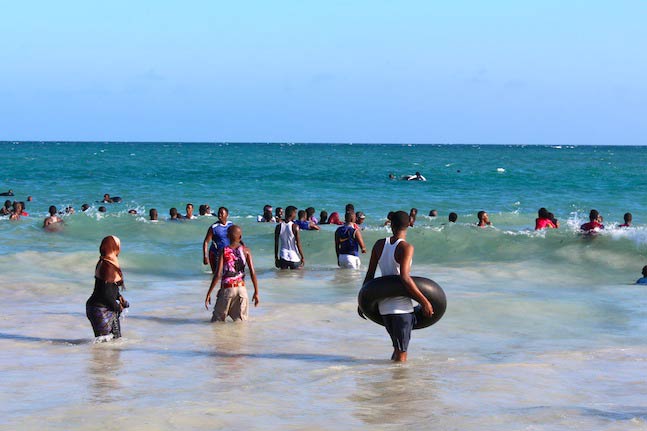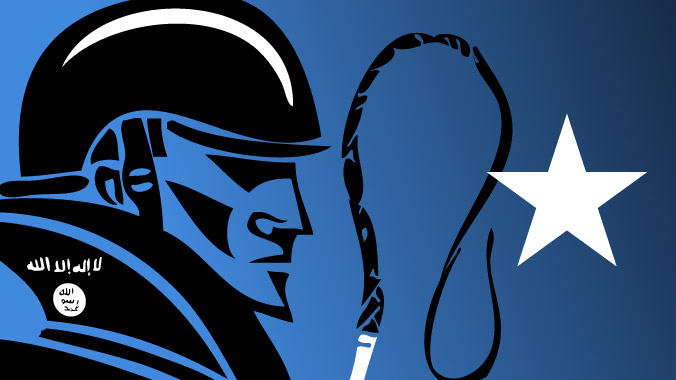For the best part of the last three years I’ve been visiting, working and living in the Somali capital, Mogadishu. During that time a lot has changed. Security has improved thanks to al-Shabab retreating from the city. Mogadishu feels like it is finally being resuscitated from the bloody two-decade long civil war-induced coma. Residents are flocking to the white sandy beaches on the edge of the city to pass time and enjoy things they couldn’t afford to because of the war.

There is also a new crowd calling this seaside city of one million people home. Somalis are returning from all corners of the globe – some moving back for good, others to seek business opportunities. As a result of this new addition to the city’s residents, rent is sky-high and competition between diasporans and locals for the few government jobs available is becoming cut throat.
Depending on the countries the diasporans are returning from, they bring with them distinct behaviours and ways alien to Mogadishu.
Somali-Brits – the serial title collectors
They make up the majority of diasporans, and they love titles more than anything. Ask for the business card of a Somali-Brit in Mogadishu – before their name you’ll find at least three titles. Mohamed, a forklift driver from the rundown area of Harlesden in London, will be Pilot, Professor, Doctor, Diplomat Mohamed. Only Somali-Brits can fit so many titles on such small cards.
Titles are not the only thing they love, though. They are also seasoned penny pinchers. They dislike tipping more than they dislike Somalia’s notorious checkpoints, and spend many minutes negotiating the price of a US $5 meal. They are experts in Qudbosiro (secret marriages). The only time Somali-Brits are happy to part with cash is when they’re paying the dowry for a secret second wife. They have a habit of bribing the local Qaadis (men who conduct weddings) so that they don’t alert the first wife back in the UK.
The Americans – the Tea Party type
This bunch is loud, big and in clothes at least two sizes bigger than your usual Somali. From their dress sense it is difficult to tell whether they came from Dadaab or Denver. Some dress in FUBU and Karl Kani labels. Unlike the Brits they will tip – only $1 dollar – and then proudly tell the whole city about their ‘generous’ deed. Because they are used to American food portions, they endlessly complain about the ‘small’ portions in local restaurants.
The Tea Party types obsessively boast about the small achievements they accomplished in American cities that the average Somali person will find impossible to find on a map – like the time they graduated from a beginner’s English language course ten years ago.
They are experts in local clan politics thanks to the liberal number of years they spent out of work and in tea shops in Minneapolis. They are Somalia’ tea party – their views and loyalty to their clans trumps everything.
They usually visit Somalia in large numbers after they have received their tax returns – the only time they can afford economy class tickets from Minneapolis to Mogadishu.
Every second sentence usually starts with, “I’m American, and you know in America…”
Despite their views corresponding with the Republican Party, they claim to vote for the Democratic Party.
The Canadians – Team Yolo (You Only Live Once)
They are ciyaalka xafada (the cool kids on the block) and mooryans (gangsters) in the making. They are everyone’s friends. This group treats life as a party and Somalia as a dance floor. They usually arrive with few things – like a minor criminal record and a Mongolian scripture tattoo they got while under the influence on a night out in Toronto. It’s hard to find them talking about serious issues. Don’t mention school – they have usually dropped out of school and are sensitive discussing this subject. If you want them to unfriend you on Facebook, tag them in photos from your graduation ceremony.
They often blame the Canadian ‘system’ for their failure in school, and regularly point to Mark Zuckerberg and Steve Jobs as examples of people who succeeded in life without completing school. Team Yolo’s favourite topic of conversation is binge-drinking in Nairobi. They’re the company to keep on a weekend when anything Halaal is not on the list.
The Scandinavians – Catwalk crew
Unlike their American counterparts, they don’t have weight issues and dress in body-hugging J Lindeberg T-shirts and slim-fit Jack & Jones jeans. They lack the social skills of the Canadians and have a dry sense of humour. They are the quietest of the diasporans because they speak a language no Somali in Somalia understands. Locals say the Somali-Scandinavians speak af shimbir (birds’ language).
Due to their poor grasp of the English language they often lose out to local university graduates for the few international NGO jobs in the market. Because they’re linguistically challenged, they are often found sitting alone in the corners of restaurants or in meetings, and making hand signals no one understands. The Scandinavians are obsessed with their looks and clothes. They can be heard complaining about how Mogadishu’s hard water is ruining their Afro or hair colour. Thanks to the long hours they spend in front of the mirror, they are easy on the eye and take likable selfies on Instagram.
The Karachi crew – the shipwrecks
This group is not considered fully diasporans nor fully local. They consist mainly of Somalis who attempted to get to Europe but weren’t lucky and ended up studying on the Indian subcontinent.
They are extremely good at lecturing others on things they know little of. They are experts on all matters mysterious, like where to find water if you end up on the moon – not that many Somalis will end up on the moon.
Local girls call them Kumel gar (the temporary ones) until the real diasporans turn up.
Their business cards usually say advisor, consultant, analyst or researcher for a diasporan taxi-driver-turned-minister or a foreign NGO.
To look cool and diasporan, they’re often found coughing on shisha or, if they’re in Nairobi, with an empty Tusker bottle – the local beer.
A Karachi crew member’s Facebook profile is filled with photos they took with other diasporans in Europe and America. They harass diasporans coming from the US for Starbucks coffee sachets.
They speak English with a heavy Indian accent but they believe they sound American. They have diplomatic passports issued under a president Somalis have long forgotten about.
A changing Somalia
These five groups aren’t the only ones who have moved back but they are the ones who stand out the most. The city is the liveliest it has been in more than 23 years. Locals have welcomed their long-lost countrymen with open arms, despite finding their new habits odd and funny at times.
With peace holding and at least five international flights landing in Mogadishu every day, it’s just a matter of time before the Somali-Aussies arrive from the end of the world. And with new shisha parlours popping up everywhere, I bet the Somalis in the Gulf are packing their bags too. The banana-flavoured shisha here is really good.
Hamza Mohamed is a journalist at Al Jazeera. Follow him on Twitter: @Hamza_Africa





